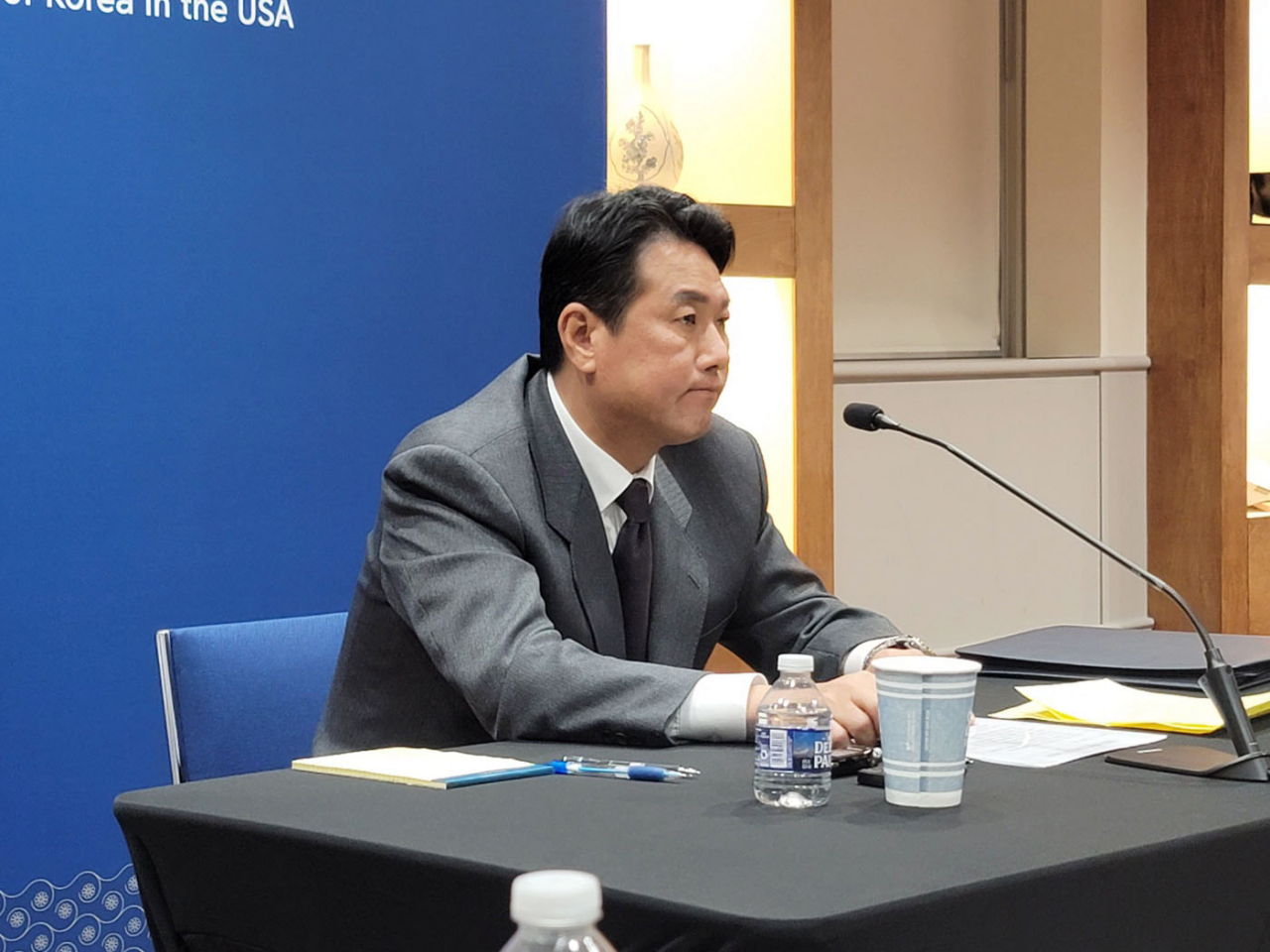S. Korea, US to complete guidelines on nuclear strategy planning, operation by mid-2024: Seoul official
By YonhapPublished : Dec. 16, 2023 - 16:56

South Korea and the United States agreed Friday to complete the establishment of guidelines on the planning and operation of a shared nuclear strategy by the middle of next year, a Seoul official said, after the allies held key deterrence talks on countering growing North Korean threats.
Seoul's Principal Deputy National Security Adviser Kim Tae-hyo made the remarks after he and Maher Bitar, the US National Security Council (NSC) coordinator for intelligence and defense policy, led the second session of the Nuclear Consultative Group (NCG) at the Pentagon.
"(The two sides) agreed to complete guidelines regarding the planning and operation of a nuclear strategy by the middle of next year," Kim told reporters. "In other words, (we) agreed to complete the overall guidelines on how to deter and respond to North Korean threats next year."
Kim said that the guidelines will encompass a whole range of issues concerning the sharing of sensitive nuclear information, the establishment of a relevant security system, the formulation of consultation procedures for nuclear crisis as well as the operation of a real-time leader-level communication channel.
The guidelines will also delineate concrete plans for crisis management and risk reduction, he said.
"At the second NCG session today, (the two sides) approved a work plan for the next six months, and through the NCG, South Korea and the US will move toward a unitary South Korea-US extended deterrence system," he said.
"While strongly deterring North Korea's nuclear and missile threats, (the allies) will be able to take an immediate, overwhelming and decisive response measure in the event of a North Korean nuclear attack," he added.
Based on the work plan, the two countries plan to build a fleshed-out nuclear extended deterrence system around June next year, he said.
Extended deterrence refers to the U.S. commitment to using the full range of its military capabilities, including nuclear, to defend its ally. Through the NCG, the two sides have been seeking to leverage South Korea's conventional military assets to support America's nuclear operations in pursuit of an integrated deterrence formula.
Following the inaugural meeting in July, the second NCG session proceeded amid tensions heightened by Pyongyang's launch of a military reconnaissance satellite last month and the possibility of the regime launching another intercontinental ballistic missile this month.
The participants also agreed on a plan to incorporate scenarios of nuclear operations in next year's allied military exercises, including the summertime Ulchi Freedom Shield, according to a Seoul official who requested anonymity.
Work is also under way to build a mobile system to enable immediate communication between the leaders of the two countries in case of a crisis, the official said.
"We have been building a system to enable the leaders of the two countries to phone each other immediately and make their decision, and to both presidents, a mobile device for frequent communication has already been delivered in case a problem flares up," he said.
But more work needs to be done to protect the leader-level phone communication from a potential electromagnetic attack or other security issues, he added.
At this week's NCG meeting, the US also agreed to provide "in-depth" nuclear education to South Korean officials next year, Kim said. In October, 15 South Korean officials received education on the US' nuclear policy, strategy and planning.
"To put it simply, our side's nuclear 'IQ' will continue to grow," he said.
After the meeting, the two sides issued a press statement, which reaffirmed that any North Korean nuclear attack against the US and its allies is "unacceptable" and will result in the "end of the Kim regime."
The two sides agreed to hold the third NCG meeting in South Korea in summer next year, according to the statement.
The latest NCG session lasted for over seven hours and was attended by some 60 security, military and diplomatic officials from the two sides, including those from the US Forces Korea, the U.S. Strategic Command and the U.S. Indo-Pacific Command.
The NCG was established under the Washington Declaration that President Yoon Suk Yeol and US President Joe Biden adopted during their summit in Washington in April as part of efforts to enhance the credibility of extended deterrence.
The inaugural session was held in Seoul in July, led by Kim and US NSC Coordinator for Indo-Pacific Affairs Kurt Campbell and NSC Coordinator for Defense Policy and Arms Control Cara Abercrombie.




















